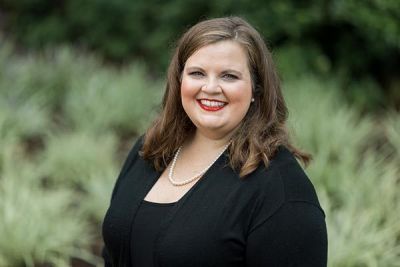

Degrees Held:
- Ed.D. – University of Mississippi, 2013
- M.Ed. – University of Mississippi, 2010
- B.S. – Mississippi College, 2007
Career Highlights:
PUBLICATIONS:
- Barlow, A. T., & Holbert, S. M. (2013/2014). Teachers' perceptions of observing reform-oriented demonstration lessons. NCSM Journal of Mathematics Education Leadership, 15, 35-49.
- Holbert, S. M., & Barlow, A. T. (2012/2013). Engaging reluctant problem solvers. Teaching Children Mathematics, 19, 310-315.
- Barlow, A. T., Riales, J. W., & Holbert, S. M. (2011). Step 1: Understanding the problem. MCTM News Fall 2011, available online at http://www.mctmonline.com/page12/ documents/mctmnewsletterfall2011.pdf
PRESENTATIONS:
- Building Productive Disposition: We Can Do It! Mississippi Council of Teachers of Mathematics, Annual Conference, Oxford, MS, October 2-3, 2015.
- Engaging Reluctant Problem Solvers: How Do You Do It? National Council of Teachers of Mathematics, Annual Meeting, Denver, CO, April 17-20, 2013.
- Lesson Observations: Insights from Middle Grades Teachers with Angela Barlow, National Council of Supervisors of Mathematics, Annual Meeting, Denver, CO, April 15-17, 2013.
- How to Engage Your Students in the Common Core State Standards for Mathematics, with Julie James, Administrator's Workshop Series offered by Project PrIME, University of Mississippi, Oxford, MS, September 12, 2012, November 14, 2012, February 13, 2013.
- Connecting Professional Development to Practice: Creating an Authentic Classroom Environment with Julie James and Brian Buckhalter, Association of Mathematics Teacher Educators, Annual Conference, Orlando, FL, January 24-26, 2013.
Which online degree program(s) do you teach?
-
Which classes do you teach online?
EDU 6503
-
What can students expect in your classes?
Group projects, weekly discussion board posts, weekly reading assignments, student presentations, live video conferencing, term paper
-
What do you want students to take away from your classes? What do you want them to learn?
Teaching mathematics for understanding as opposed to teaching for memorization is the most important thing that we can do as teachers. Providing elementary students with opportunities to problem solve, strategize, communicate with their peers, and represent their work in a meaningful way leads to conceptual understanding and sustained learning. It is my goal for students in EDU 6503 to learn to teach mathematics for conceptual understanding and implement what they have learned in their classrooms.
-
What is the value of this degree?
A master's in Elementary Education from Mississippi College is very beneficial for teachers. The professors at MC have much experience and keep current with best practices and methods in their area of expertise. In my classes, I use more group work, problem solving, and collaboration than lecture. I teach EDU 6503 using the same methods that I expect my students (classroom teachers) to implement in their own elementary classrooms so that they can see it modeled. Many professors use inquiry and problem solving as opposed to lecture which is more beneficial to students.
-
Why did you start teaching?
I started teaching because I felt called to be a teacher. I loved helping others, sharing knowledge, and I saw myself as a leader. Of course I loved children as well, but I believe it takes more than just loving children to be a teacher. You can be any other profession and still love children. It takes a special person to be a teacher, spending all day with children and imparting love, knowledge, and patience on them. I felt called to do that.
-
What advice would you give to prospective students considering this program?
Consider why you want to earn a master's degree. If you want to learn best practices, engage in meaningful activities, and learn to research in a way that will benefit you in your classroom, MC is the place for you.
-
What qualities make someone particularly successful in education?
Being successful as a teacher requires so many qualities. I believe ambition, leadership, organization, patience, love of learning, being a good communicator, love of children, and many other qualities are necessary to be effective as a teacher.
-
What is the one book you think everyone should read?
"The Teaching Gap" by James Hiebert and James W. Stigler
-
Tell us something your students may not know about you:
I come from a very close family. I have two sisters who are my best friends and two nieces. My favorite and only child is my yellow lab named Annabelle. From 6th grade until my freshman year in college, I wanted to be a doctor (of medicine). It wasn't until later that I realized I was meant to be a doctor, but my field of study was intended to be education and not medicine!

